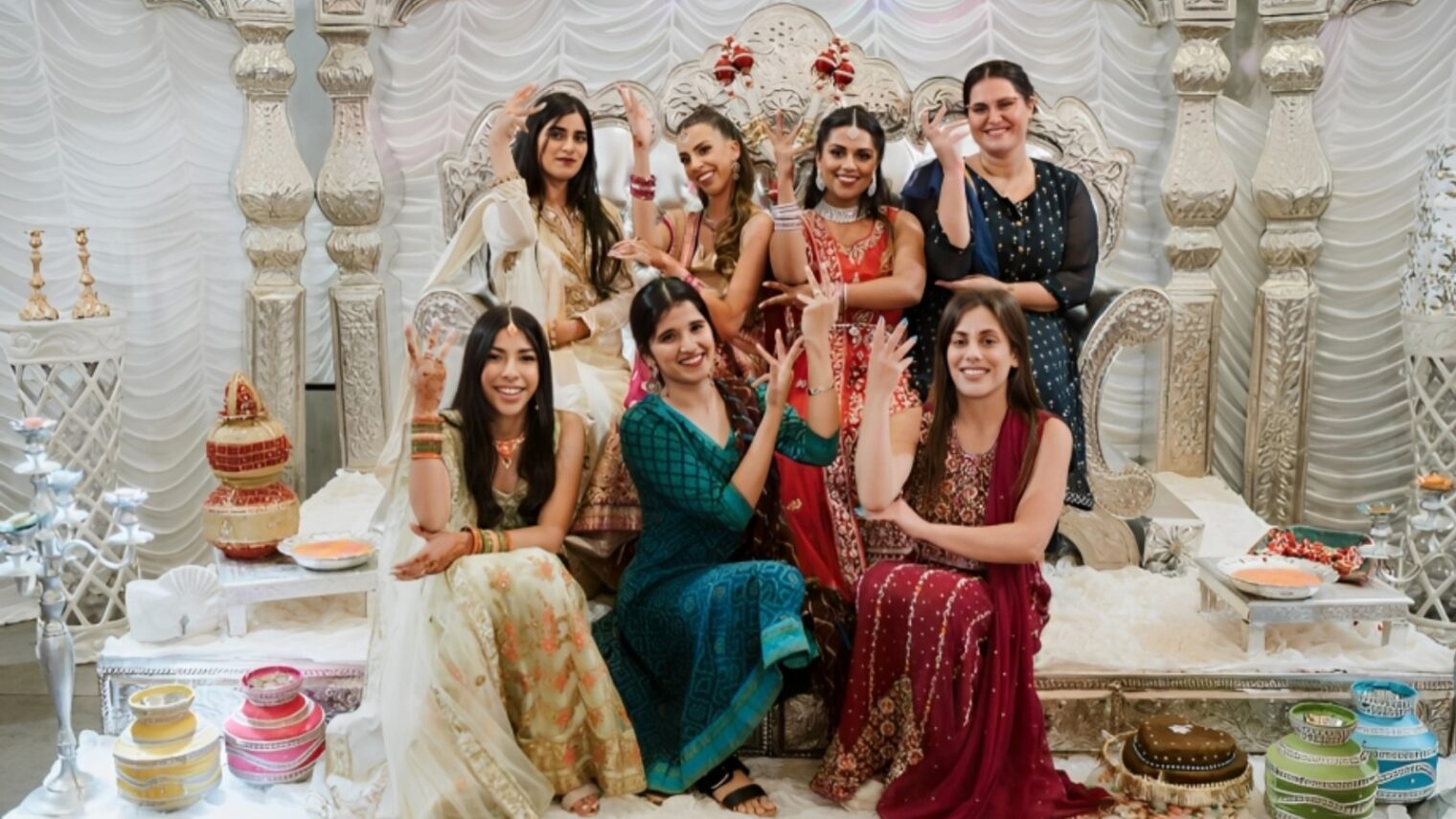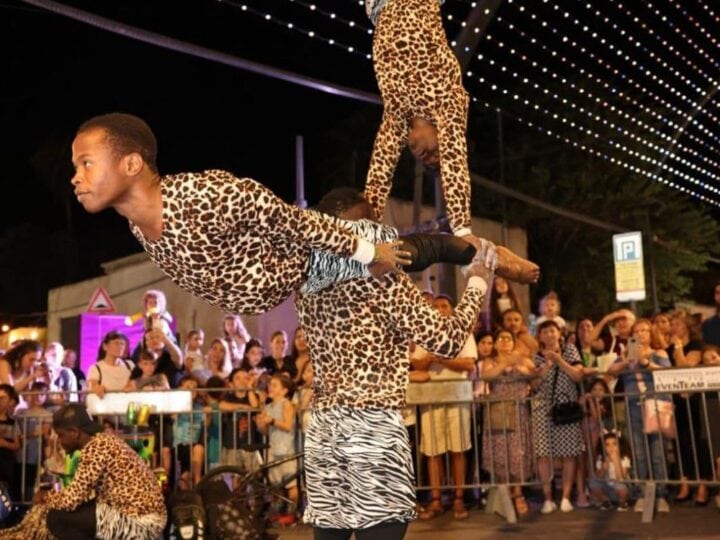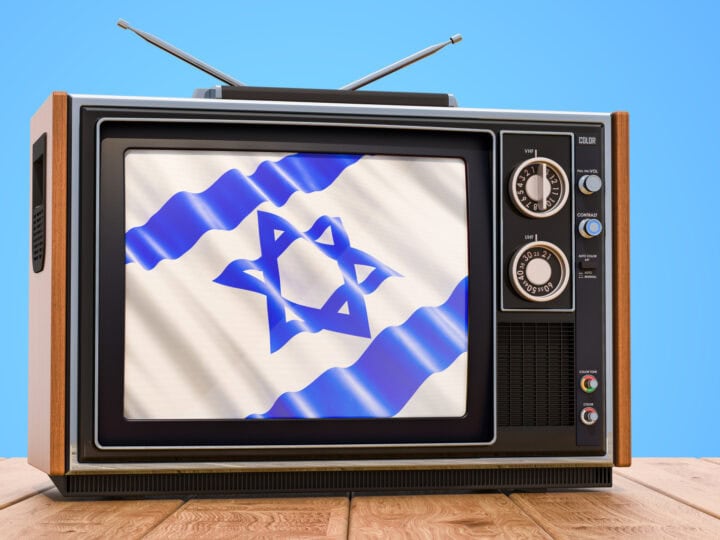If you’re craving falafel in Israel, you’ll find stands selling these fried chickpea balls everywhere. But if you’re craving the Indian cousin of falafel, pani puri, you may have to make it yourself.
Revital Moses, 28, stocks up on pani puri mix from a store in Tel Aviv that imports products from her native India. When she’s not in the mood to cook, she patronizes Indian restaurants run by fellow immigrants or by Israelis who traveled to India and fell in love with the cuisine.
“The food is not 100 percent authentic,” she admits, “but it’s a good attempt. And I understand, because we’re in Israel and the food has to appeal to international taste buds.”
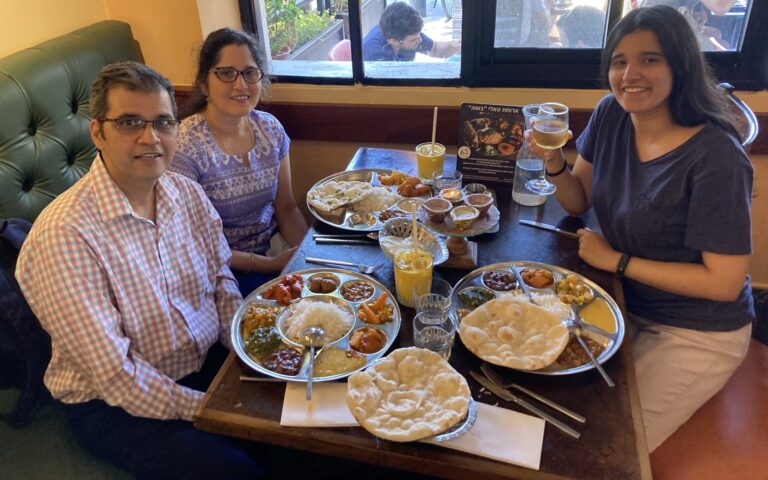
On her YouTube channel with 1.66k subscribers, Moses explores Israel as a new Indian immigrant.
Her videos showcase Israeli and Indian culture, Israeli university programs for overseas students, tips for traveling to Israel as a tourist or student, successful Indian Israelis (such as Hindu immigrant Pratik Thakker) and the warm 30-year relationship between India and Israel.
Spiritual and practical opportunities
Obviously, Moses didn’t move to Israel from a Mumbai suburb for culinary reasons but rather for spiritual and practical reasons.
“It was a mutual decision in my family to live a more Jewish life,” she explains.
“Life in India is beautiful, but there are challenges when you are a member of a small community, such as celebrating the Jewish holidays and finding Jewish partners. We needed a sense of community for ourselves and future generations,” she says.

Her video below shows her cousin’s Indian wedding in Israel, complete with Bollywood-style dancing, a henna ceremony and the fruity, flowery Malida thanksgiving ritual performed at every lifecycle event and even housewarmings.
“In terms of opportunity, Israel has a good track record in tech and other fields,” Moses adds.
“All of this brought us – my mom, dad, younger sister and me — to the decision to make aliyah.”
Arriving four days before the first pandemic lockdown, in March 2020, unfortunately complicated everything from gathering paperwork, to learning Hebrew, to making friends.
But Moses managed to complete an ulpan (intensive Hebrew course) for young professionals in Ra’anana, while her parents and sister did a family ulpan in Ashdod, where they live.
Now she resides in the Tel Aviv suburb of Ramat Gan, working from home as a campaign manager for a marketing agency. Her sister is serving in the army.
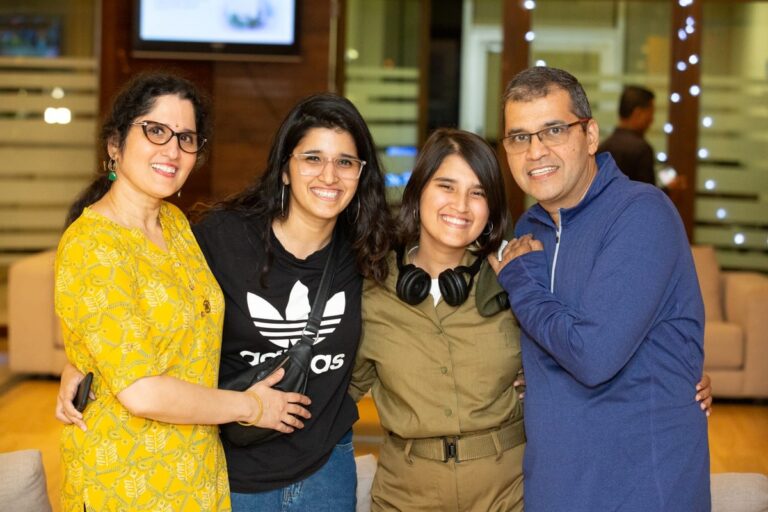
Indians in Israel
Moses estimates that between 95,000 and 100,000 Jews of Indian origin live in Israel.
They comprise five distinct communities: Bnei Menashe of northeast India; Bnei (or Bene) Ephraim; Baghdadi; Cochini; and Bene Israeli, the Moses family’s community from the Mumbai area.
“Most Cochini Jews have already been in Israel for years. Many Bene Israelis are well settled here too, but now many more Bene Israeli millennials and Gen Zs are starting to move here, especially after they come to Israel on Taglit-Birthright trips,” Moses explains.
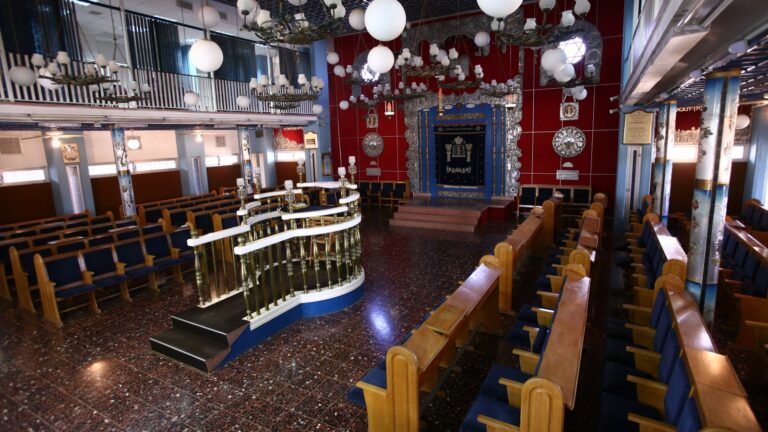
She considers India her motherland and Israel her fatherland.
Despite the aforementioned culinary differences, she says that Israeli and Indian culture have many similarities that create a sense of comfort for Indian immigrants.
Each has a proud history going back thousands of years. Both countries gained independence from Great Britain, India in August 1947 and Israel in May 1948. Indian troops played a major role in the successful 1918 battle of Haifa against the Ottoman Empire, Moses adds.
“We also love that so many Israelis travel to India after the army. That’s an icebreaker for us because Israelis are aware of Indian culture from their trips.”
“Indians and Israelis are both very warm, family-oriented people,” she says.
What would Moses like Israelis to know about Indian immigrants? “We are very rooted, humble people and we want to make a positive impact here.”
Click here to see Revital Moses on YouTube.




